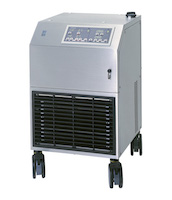
Cardiac surgery is serious. Opening a patient’s chest and operating on their heart is a task reserved for those that are among the best at what they do. The patient’s life is, quite literally, in the surgeon’s hands and recovery can be just as threatening as the operation itself. Infection is a grave concern at this stage as the patient’s body works overtime to recover from the trauma of the procedure it just endured.

The specific infection is known as an M. Chimaera, or NTM infection, and it can be serious and even life threatening. Worse, the infection can take months or years to manifest.
The goal of the panel’s meeting is to determine whether additional guidelines regarding the cleaning and disinfection of heater-coolers are needed as well as determining what action, if any, is necessary for those patients that already had cardiac surgery where a heater-cooler was used.
32 reports of heater-cooler associated infection have been reported to the FDA. 25 of those were received last year alone. Patients who had cardiac surgery and show symptoms of M. Chimaera or NTM infection are urged to contact their doctor or surgeon immediately, regardless of how long ago the procedure may have been completed.
